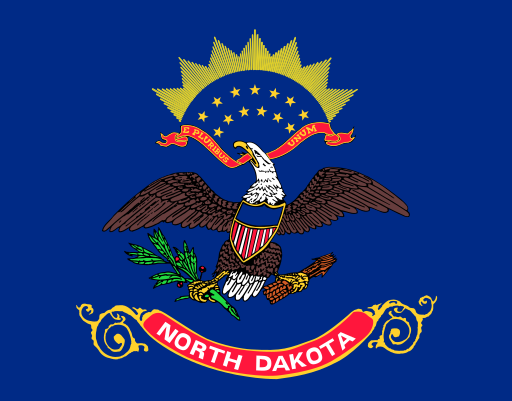The North Dakota State Legislature referred a constitutional amendment to the 2024 ballot asking voters to make changes to the state’s initiative process, including changes that would make it more challenging for constitutional initiatives to qualify for the ballot and be adopted.
The amendment, Senate Concurrent Resolution 4013, was passed by the Senate in a vote of 44-3 on Feb. 21. The House passed an amended version of the bill on March 23 in a vote of 73-18. The amendment received support from nearly 20% of Democratic legislators and over 90% of Republican legislators. Among the state’s 16 Democratic legislators, three voted in favor of the amendment. Among the 125 Republican state legislators, 114 voted in favor of the amendment. The Senate concurred with the House’s amendments on April 10 by a voice vote.
The amendment would make changes to the state’s laws governing the initiative process, including:
- establishing a single-subject rule for initiatives (both statutory and constitutional), as determined by the North Dakota Secretary of State;
- increasing the signature requirement for constitutional amendment initiatives from 4% of the resident population to 5% of the resident population of the state; and
- requiring proposed constitutional initiatives that have qualified for the ballot to be placed on the next primary election ballot, and, if approved, be placed on the next general election ballot, where it must be approved again to become effective.
As of 2023, North Dakota was one of nine states that provide for at least one type of statewide citizen-initiated measure and that did not have a single-subject rule. The single-subject rule is a state law that requires ballot initiatives to address a single subject, topic, or issue. There are 26 states that provide for at least one type of statewide citizen-initiated measure. Of those 26 states, 17 have single-subject rules.
Of the 26 states with a process for citizen initiatives, 18 states allow initiatives to amend the state constitution. Nevada is the only state where initiated constitutional amendments must be approved at two consecutive elections. This does not apply to legislatively referred constitutional amendments, which must be approved twice by the legislature (with a majority vote) but only once by the state’s voters. Since the pass-it-twice requirement was created in 1962, there have been 15 citizen-initiated constitutional amendments that passed at the first election and appeared on the ballot again at the next election. Of the 15 measures, 13 were passed at their second elections (86.66%) and two failed (13.33%). Question 9 (1982) was rejected by 58.77% of the vote after it was approved by 70.31% of the vote in 1980. Question 3 (2018) was rejected by 67.05% of the vote after it was approved by 72.36% of the vote in 2016.
The number of signatures required to put an initiative on the ballot is tied to the population reported by the last decennial census. In 2021, the population of North Dakota was reported as 779,100. For initiated state statutes, the number of signatures required is 2% of the population (15,582). For constitutional amendments, it is 4% of the population (31,164). Signature requirements will be recalculated after the 2030 decennial census and will trigger changes in the number of required signatures beginning in 2032.
From 1996 through 2022, 17 initiated constitutional amendments appeared on the ballot. Voters approved 10 (58.82%) and rejected 7 (41.18%) of the proposed amendments.
From 1996 through 2022, the state legislature referred 37 constitutional amendments to the ballot. Voters approved 24 (68.86%) and rejected 13 (35.14%) of the referred amendments.


